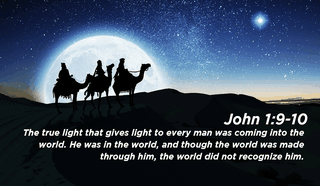
Change Translation
- Recent Translations
- All Translations
John 1:49
Share
Listen to John 1:49
Settings
Scripture Text Size
49
respondit ei Nathanahel et ait rabbi tu es Filius Dei tu es rex Israhel
John 1:49 In-Context
47
vidit Iesus Nathanahel venientem ad se et dicit de eo ecce vere Israhelita in quo dolus non est
48
dicit ei Nathanahel unde me nosti respondit Iesus et dixit ei priusquam te Philippus vocaret cum esses sub ficu vidi te
49
respondit ei Nathanahel et ait rabbi tu es Filius Dei tu es rex Israhel
50
respondit Iesus et dixit ei quia dixi tibi vidi te sub ficu credis maius his videbis
51
et dicit ei amen amen dico vobis videbitis caelum apertum et angelos Dei ascendentes et descendentes supra Filium hominis
The Latin Vulgate is in the public domain.

